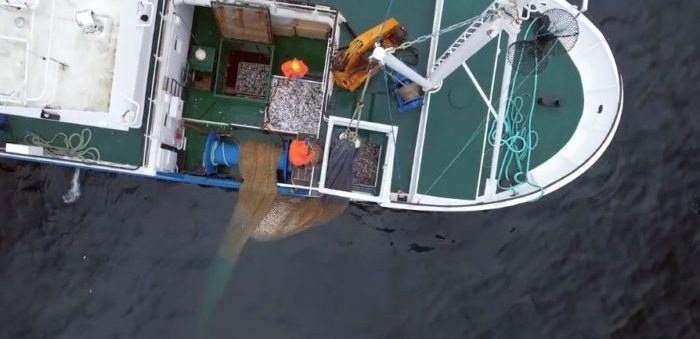Up to $23.5 billion worth of seafood is stolen from the sea each year, which is equivalent to 1 in 5 fish sold. This pillaging of the world’s oceans threatens fish stocks, undercuts law-abiding fishers, and harms the economies of coastal communities.
The Pew Charitable Trusts is working with governments, enforcement authorities, technology experts, and key players from the seafood industry to tackle this challenge. This work includes:
- Policy: Pew works with governments, fisheries management bodies, enforcement authorities, and the seafood industry to support the adoption and implementation of regulations and international policies that are making it harder for fishers to operate illegally.
- Enforcement: Enforcement means not only putting tough laws in place, but also ensuring that countries have the appropriate tools to monitor fishing vessels and apprehend the criminals engaged in this illegal activity.
- Technology: Pew has partnered with the U.K. company Satellite Applications Catapult to launch Oversea Ocean Monitor. A team of analysts at OceanMind, a British nonprofit organization that manages this platform, is using it to give governments, authorities, and retailers up-to-date information on fishing activity throughout the world.
- Markets: Pew works with seafood buyers to educate them on the actions they can take to keep illegally caught fish out of their supply chains—and off store shelves.
As the illegal fishing becomes more and more an area of concern for the global community, IMO’s Sub-Committee on Implementation of IMO Instruments (III) meeting in September 2017, agreed a number of proposals to address the issue, focusing on key areas of vessel identification; flag and port state performance; training and implementation of relevant instruments; and environmental issues.
In addition, earlier in November, Environmental groups World Wildlife Fund (WWF), TRAFFIC and Hewlett Packard Enterprise (HPE) announced the launch of a new web tool designed to fight illegal fishing. The tool identifies discrepancies in reported trade, in both farmed and wild-caught products, between countries and raises red flags that laundering or illegal trade may be occurring.
“With the right policies, tools, leadership, and a commitment to sharing information, we can end illegal fishing,” Pew noted.
Recently, Pew Trusts issued a relevant infographic, informing of how illegal fishing threatens crew safety, which can be viewed here.
You may also click here to watch an interactive video.






























































